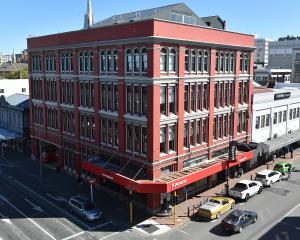New Zealand's 21-year high inflation rate will raise workers' expectations about wage increases in the next wage-bargaining round, union officials say.
But employer representatives caution some employers will not be able to afford the increases workers want and meeting those expectations could destroy job growth.
Inflation hit 5.3% yesterday, the highest level in a generation, driven by the recent increase in GST and increasing food and fuel costs.
It is expected to drop during the next few months, reaching about 3% by next year.
Workers would expect wages to increase by 5.3% or close to it, New Zealand Council of Trade Unions secretary Peter Conway said yesterday.
"Workers are going to say: 'Aren't I going backwards if I get less than 5.3%?'. This is going to put pressure into the wage bargaining," he said.
While Mr Conway was not predicting widespread industrial action, he thought workers would be less inclined to accept settlements which they did not believe were high enough.
He also believed there would be more dissatisfaction among workers who felt wage rates were not keeping up with inflation.
The CTU and other unions were renewing the call for the minimum wage to be increased to $15 an hour, Mr Conway said.
Employer representatives said while high inflation had a flow-on effect in wage bargaining, some employers could not afford increases of 5% or more.
Speaking from Shanghai, Otago Chamber of Commerce chief executive John Christie said 2-5% was a fair indication of what employers expected to pay in the next wage round.
"Some are facing genuine hardship. Profitability has been significantly down for some over the past few years."
Some employers would wonder where they could find 5%, he said.
If they increased wages and salaries by that amount, the trade-off could be not taking on new staff or cutting back on hours, he said.
"I hope that increased wages will not come at the sacrifice of increased employment opportunities."
Using the inflation rate as a starting point for wage bargaining was "a lazy proxy", Business New Zealand chief executive Phil O'Reilly said.
Instead, unions, employees and employers should look at the underlying health, productivity and performance of individual companies and who contributed to that, he said.
The economy was growing in a "very lumpy way", he said.
Exporters were doing better than businesses involved in tourism or retailing.
Using the inflation rate as a starting point for "one-size-fits-all wage bargaining would definitely destroy job growth", Mr O'Reilly said.
There was no doubt increasing expectations for wage increases at the rate of inflation would would have "follow on ramifications" for employers, Otago Southland Employers Association chief executive John Scandrett said.
"When we look at the manufacturing and service sectors, there are very evident examples of the local region not keeping pace with national tracking patterns. Many employers in this part of the world are already seeing growing hardship in maintaining that delicate balance between ... red or black ink bottom-line performance."












